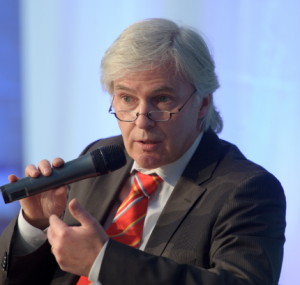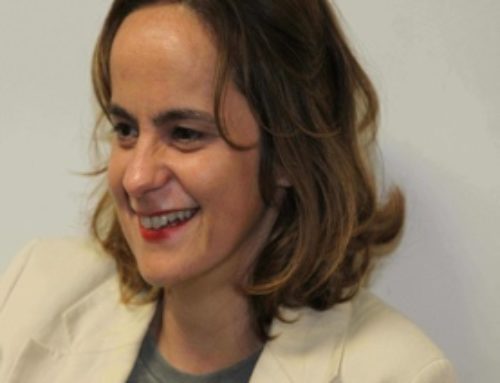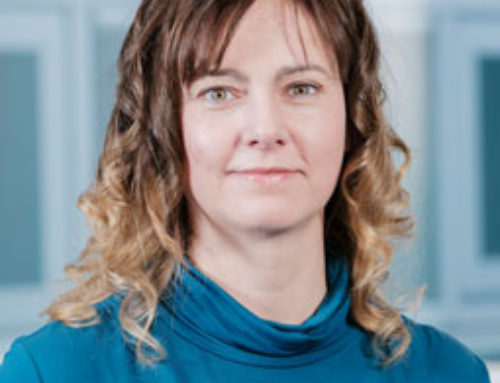HETL Note: We are pleased to conclude the 2012 International HETL Review (IHR) volume with the feature article “Academics as Teachers: New Approaches to Teaching and Learning and Implications For Professional Development Programmess” co-authored by Professors Monica Feixas and Dieter Euler. How to support academics to become excellent teachers? How to develop strategies to motivate and engage students in higher learning? The authors tackle these difficult questions with rigour and enthusiasm and provide guidelines for academics and academic managers. You may submit your own article on the topic or you may submit a “letter to the editor” of less than 500 words (see the Submissions page on this portal for submission requirements).
 Authors’ bios: Dr. Monica Feixas is an Associate Professor in the Department of Applied Pedagogy at the Universitat Autònoma de Barcelona (UAB). She holds a Licenciate in Pedagogy, a master’s degree in educational administration (Columbia), and a doctorate in education sciences (UAB). She teaches graduate and postgraduate courses in educational management and higher education with a team that has been awarded the Jaume Vicens Vives Distinction by the Catalan Government for academic innovation and teaching quality. Dr Feixas is a member of the EDO research group (Organizational Development Team, edo.uab.cat) and was a research fellow at the University of St. Gallen (Switzerland). Her research interests include pedagogical training of university teachers, assessment of university teachers’ teaching and research, teaching and learning cultures, and organizational and cultural changes at universities. At present she leads a research project on teacher training transfer in higher education. Find more about Dr. Feixas at http://edo.uab.cat. She can be contacted at [email protected]
Authors’ bios: Dr. Monica Feixas is an Associate Professor in the Department of Applied Pedagogy at the Universitat Autònoma de Barcelona (UAB). She holds a Licenciate in Pedagogy, a master’s degree in educational administration (Columbia), and a doctorate in education sciences (UAB). She teaches graduate and postgraduate courses in educational management and higher education with a team that has been awarded the Jaume Vicens Vives Distinction by the Catalan Government for academic innovation and teaching quality. Dr Feixas is a member of the EDO research group (Organizational Development Team, edo.uab.cat) and was a research fellow at the University of St. Gallen (Switzerland). Her research interests include pedagogical training of university teachers, assessment of university teachers’ teaching and research, teaching and learning cultures, and organizational and cultural changes at universities. At present she leads a research project on teacher training transfer in higher education. Find more about Dr. Feixas at http://edo.uab.cat. She can be contacted at [email protected]
 Professor Dieter Euler, Ph.D. holds the Chair of Educational Management at the University of St. Gallen (Switzerland) since 2000. Before that, he was professor of business education at the universities of Potsdam (1994-1995) and Nuremberg (1995-2000). Professor
Professor Dieter Euler, Ph.D. holds the Chair of Educational Management at the University of St. Gallen (Switzerland) since 2000. Before that, he was professor of business education at the universities of Potsdam (1994-1995) and Nuremberg (1995-2000). Professor. Euler holds several mandates in international scientific bodies and consults the German Federal Government in the area of vocational education and training. Among others, he is a member of the American Educational Research Association (AERA) and the European Association for Research on Learning and Instruction (EARLI). His research interests focus on technology enabled learning, innovative ways of teaching and learning, strategic aspects of educational management, vocational education and training, and corporate learning. Find more about Professor Euler at the Institute for Educational Management and Business Education (University of St Gallen, Switzerland website at http://www.iwp.unisg.ch. He can be contacted at [email protected]
Krassie Petrova and Patrick Blessinger
~~~~~~~~~~~~~~~~~~~~~~~~~~~~~
Academics as Teachers: New Approaches to Teaching and Learning and Implications for Professional Development Programmes
Mònica Feixas, Universitat Autònoma de Barcelona, Spain
Dieter Euler, University of St. Gallen, Switzerland
Abstract
This article reviews academics’ changing conceptions of and approaches to teaching and learning and how these changes vary according to their professional development, discipline and context. The discussion is structured along these academics’ conceptions and approaches and makes recommendations to enhance professional development programmes. A suggestion is made to take an institutional perspective for quality teaching that effectively aligns the university’s teaching and learning strategy with teacher training and assessment, recognition and quality assurance.
Keywords: Professional development, teaching beliefs, teaching approaches, teaching development programme, learning transfer.
APPROACHES TO TEACHING AND LEARNING: SHIFTING OVER TIME
The way academics teach at universities make a difference! Although the specific relationship between academics’ teaching and students’ learning is anything but clear, hardly anybody challenges this assumption. But how do academics teach? And how do they come to develop their teaching conceptions and approaches?
Over the last three decades, there has been a considerable amount of research investigating the range of meanings of teaching as experienced by academics and the intentional nature with which they approach their teaching. Such studies include teachers’ beliefs and knowledge (Marcelo, 1987; Calderhead, 1996); conceptions of teaching (what they believe about teaching) and approaches to teaching and learning (how they enhance teaching and learning); and the relations between these research topics (Dall’Alba, 1991; Kember 1998; Marton & Säljö, 1997; Murray & Macdonald, 1997; Norton et al., 2005; Prosser & Trigwell, 1999; Ramsden, 2003; Samuelowicz & Bain, 2001).
The objective of this article is to evidence that academics’ teaching approaches and conceptions can change and develop towards a learning-centered approach if the provision of teaching development programmes fit the teachers’ particular needs and concerns at the different phases of their professional development as teachers.
This paper reviews recent research on the conceptions of and approaches to teaching and the changes that occur in academics’ teaching in different phases of their professional career. It also considers the ways teachers learn and the implications that such evidence have for teachers’ professional development. Two statements are made. First, any initial teacher development programme must be comprehensive, and viewed as a transformative process to change teachers’ approaches. Second, any measure for quality teaching and learning should effectively align with the university’s teaching and learning strategy, particularly relating to teacher training, assessment, recognition and quality assurance.
Teaching beliefs, practices and strategies
All teachers hold personal conceptions of and approaches to teaching resulting from their experiences as students and teachers (Dall’Alba, 1991; Pratt, 1992; Ramsden, 2003; Samuelowicz & Bain, 1992). Studies on teachers’ approaches to teaching identify two qualitatively different categories. The ‘learning-focused’ approach is about teaching as facilitating students’ learning and learning as knowledge construction, while the ‘content-focused’ approach concerns teaching as transmission of knowledge and learning as absorbing the transmitted information (Kember & Kwan, 2000; Prosser & Trigwell, 1997; Trigwell, Prosser & Waterhouse, 1999). Among these, Kember and Kwan (2000) identified four subcategories of teaching: teaching as transmitting information; teaching as making information accessible to students; teaching as meeting learning needs; and teaching as facilitating students to become independent learners. Each of these conceptions is manifested through teacher behaviour such as motivational approaches, teaching strategies, attention to and engagement with students, and assessment practices.
Åkerlind (2005) argues that individual academics experience the world of teaching differently and therefore have different conceptions of it. She states that a teacher-centered focus is seen across the range of studies as constituting a less sophisticated view of teaching than a learner-centered focus, and is regarded as less likely to produce high-quality learning outcomes amongst students. She suggests that teacher-centered approaches and student-centered approaches do not constitute two different categories, but rather that they relate to each other, in the same way as there is a relationship between conceptions of teaching and learning (Åkerlind, 2003).
The debate surrounding the idea of considering whether student-centred and teacher-centered approaches represent two ends of one continuum or whether they are separate categories has also been investigated by Postareff, Lindblom-Ylänne and Nevgi (2008). In their opinion, the latter view emphasises that a student-centered teacher might sometimes use features that are typical of teacher-centered teaching depending on the teaching context. However, a corresponding relationship in the opposite direction is not possible.
Some studies have explored the relationship between teachers’ conceptions and student learning (Hanbury, Prosser & Rickinson, 2008; Kember & Gow, 1994; Trigwell, Prosser & Waterhouse, 1999) or focused on the university teachers’ experience of change in their understanding of the subject matter (Trigwell et al., 2005). Others have linked the perceptions of the teaching environment or the disciplines with approaches to teaching (Prosser & Trigwell, 1997; Lindblom-Ylänne et al., 2007) and maintain that changes in the teachers’ teaching and learning environment prompt new concerns and changes in teaching practices. Finally, research also investigated the relationship between the teachers’ initial training and their approaches to teaching and learning (Gibbs & Coffey, 2004). They all agree that teaching approaches are a manifestation of the teachers’ conceptions, practices and beliefs, mainly in interaction with their students but also as a reflection of their attitudes and skills when working with other colleagues, at a particular period of time and given a specific context.
Teachers’ educational beliefs also influence and determine their teaching behaviour. According to Marcelo (1987), some teachers experience conflicts between their beliefs and their behaviour in class; consequently, their behaviour does not correspond to their beliefs and vice versa. This view is supported by Samuelowicz and Bain (2001), who claim that teachers have ‘ideal’ conceptions of teaching and ‘working’ conceptions of teaching; therefore, even if they believe that student-centred approaches are best, they may not act on this belief. It is likely that during the first years of teaching, educational beliefs and classroom behaviour may conflict. Over time, teachers are likely to strengthen their beliefs, which may also result in an increased consistency with their teaching behaviour. Consistency between beliefs and behaviour are also increased if beliefs are adjusted towards behaviour.
Many studies confirm the idea that changes in teacher beliefs and behaviour and student learning approaches occur over time (Cilliers & Herman, 2010; Hanbury, Prosser & Rickinson, 2008; Ho, 2000). Ho (2000) and Kember and Kwan (2000) conclude that changes in teacher’s conceptions of teaching are necessary before changes in teacher behaviour towards more student oriented approaches can be expected.
Norton et al. (2005) maintain that teaching intentions are a compromise between teachers’ conceptions of teaching and their academic and social contexts. In accordance to this, Eley (2006) adds that the link between teachers’ conceptions and teaching practice is tenuous and that the relationship is one of espoused conceptions and reported approaches. Kane et al. (2002) caution that the connection between teachers’ beliefs and their actions must be viewed as tentative since few studies provide sufficient evidence of changes in classroom practice.
In her study of the changes in teaching throughout academics’ professional careers at two universities in Catalonia (Spain), Feixas (2010) focused on the effects of teacher preparation on pedagogic understandings and orientation, as well as on changes in teachers’ approaches to and conceptions of teaching and learning. Results suggest that some teachers were clearly and systematically either learning or content focused but most teachers reported a hybrid approach to teaching. Termed “dissonant profiles” (Postareff, Katajavuoria, Lindblom-Ylänne & Trigwell, 2008), it means that most profiles consisted of combinations of learning and content focused approaches or conceptions and varied depending on the disciplines. Additionally, evidence of a shift from teachers’ to learners’ needs was seen in those teachers with considerable pedagogical training (such as an initial training programme), in those with previous teaching experience (e.g., in secondary education), and in those teachers of social sciences rather than other disciplines.
To sum up, all these studies report the idea that change is a process, it is developmental and occurs over time. Practice changes before beliefs do and that it is a strictly personal experience conditioned by the teachers’ academic and social context.
Teacher development
Teachers’evolving approaches to teaching may be aligned with the stages of their professional development, from less sophisticated conceptions and strategies to more sophisticated ones. According to Kugel (1993), Nyquist and Sprague (1998) and Robertson (1999), university teacher development has a sequential and progressive structure. The theoretical perspective in Kugel’s work assumes that knowing the content and presenting it in a fluid way is sufficient for good teaching (what do I want to teach or what can I teach?). The theoretical perspective adopted by Nyquist and Sprague complements this picture with additional skills and improved teaching strategies (how can I teach better?). The third perspective (in Robertson’s study) presupposes prior competences and understands teaching as a process aimed at changing teaching conceptions and helping students to develop their own rationale (what do students need to learn?).
Kugel’s development schema (1993) describes five stages in the development of a university teacher and explores what happens within each stage and in the transition process from one stage to the next. Stages 1 – 3 comprise a single phase in which academics work on different aspects of teaching or presenting the material, while in the second phase, there is a shift in the focus from teachers’ teaching towards students’ learning. Similarly, Nyquist and Sprague’s scheme (1998) underlines a shift in the development of beginning teachers from the emphasis on the self (stage 1) to the skills (stage 2) to the student (stage 3). Changes in the development of beginning teachers are described according to four dimensions: concerns, discourse level, relationship with students and relationship with authority. They conceive the development as occurring in a three-stage process.
While Kugel (1993) and Nyquist and Sprague (1998) focus on how new university teachers go through phases of development and their implications for staff development, Robertson (1999) analyses each of the phases of the development process of professor-as-teacher. According to Robertson (1999), there are three different perspectives regarding how academics view their work as teachers, which are organised as they usually appear in the teachers’ development process: egocentrism (focused on the teacher), aliocentrism (focused on the student) and systemocentrism (focused on the student and the teacher). They are analysed from the following dimensions: content, process, students, teachers and context.
In an attempt to shed new light, Feixas (2010) identified three different approaches to developing as a university teacher and suggested that these are hierarchical with each phase building on the achievement of the previous. The phases are: a) a focus on self and surviving the first teaching semester which leads to improving content knowledge or what to teach, b) a focus on improving the repertoire of strategies in order to gain experience in how to teach more effectively, and c) a focus on reflecting on what works and why in order to effectively facilitate student learning.
The previously espoused theory (Feixas, 2010; Kugel, 1993; Nyquist & Sprague, 1998; Roberton, 1999) states that academics’ approaches to teaching and learning develop in pedagogical phases and gradually shift from a focus on self, to a focus on teaching until teachers adopt the perspective of the students’ learning approach. This suggests a progression in teachers’ beliefs in their approaches to teaching and learning and an improvement in the sophistication of teaching strategies, leading to deeper engagement with students. Teachers’ beliefs are also affected by personal and contextual factors related to their professional pathway (e.g., including experiences with various teaching models, teaching working culture, own teaching philosophy, pedagogical training). Feixas (2004) concludes that it is impossible to claim that all teachers can reach a teaching approach focused on the students’ learning, unless they undergo extensive pedagogical training. Teaching preparation courses do have an influence on teaching conceptions and behaviour but there are many other variables to be controlled for to support efficient changes in teaching practices.
IMPLICATIONS FOR TEACHING DEVELOPMENT PROGRAMMES
The literature presented allows many suggestions for improving teaching development programmes. In the following section, some considerations on the pedagogical design of the teachers’ training programme
are provided, including how academics learn better to become effective teachers and the impact these programmes have in changing teachers’ approaches and practices. An institutional perspective for quality teaching should effectively align the university’s teaching and learning strategy with teachers’ training, teachers’ assessment, recognition and quality assurance.
Teaching development programmes
At present, most universities offer professional development activities designed for new staff, and for other academics wishing to develop advanced expertise and leadership skills in university teaching roles. Through a combination of seminars and practical activities such as peer review of teaching and reflective portfolios, participants gain insight into principles and theories of effective university teaching. These insights can be used to inform their teaching practice.
In addition to their primary goal of developing teachers’ repertoire of skills in teaching (course planning, teaching, assessing), professional development programmes promote the scholarship of teaching and learning (Boyer, 1990) and aim “to infuse teaching with scholarly qualities in order to enhance learning” (Brew & Ginns, 2008, p. 535). Teacher development programmes encourage good teaching practices designed to promote good student learning and engagement. Good teaching and good learning are linked to the students’ experience of what teachers do in classrooms. As Ramsden (2003) points out, “we cannot teach better unless we are able to see what we are doing from their point of view” (p.84). It is important therefore that professional development programs focus on approaches that foster ‘scholarly teaching’ and ‘excellent teaching’ (Healy, 2003).
The post-experience programmes may also be complemented with other dynamic measures such as specific teaching staff development activities including systematic mentoring, observation-based video feedback, action research and work-based learning to enable participants to develop subject-specific pedagogical practices. Additionally, they promote the creation and consolidation of professional communities of practice to support the application of disciplinary and pedagogical knowledge and skills among peers.
How academics learn to become effective teachers
No matter the age at which it occurs, human learning is based on a common set of principles. While adults have more life experience to draw from than younger learners and are often clearer about what they want to learn and why it is important, the means by which the learning occurs is remarkably similar: Learning is experience plus reflection (Handy, 2006), and the ability to acquire new ideas from experience and retain them in the memory (Kandel, 2007). Learning is organic, sometimes incidental, not highly structured; it only partly happens in the formal setting or classroom, it is more or less intentional and driven by the learner. Learning also happens informally while working (Marsick & Watkins, 1990).
According to Vermunt and Endedijk’s (2011) review, teachers employ a great variety of learning activities, regulate their learning in different ways and report a great variety in learning outcomes. This may include different kinds of teaching practices, beliefs about learning and teaching, behavioural intentions and affective states. Teachers learn from their own practical experience (Eraut, 2007; Kolb, 1984) and enhance their learning in the workplace in collaboration with their peers and students.
Deep approaches to learning have to be considered in the design of teachers’ training to enhance academics’ learning processes. There are some implications in doing so. First, teaching and learning methods should support the aims and intended outcomes of the programme. Learning methods used in professional development should mirror the methods teachers are expected to use with their students as closely as possible. Second, teaching should make the structure of the topic explicit, and should elicit active responses, confront and eradicate misconceptions, and build on what teachers already know. Finally, teaching should promote deep rather than surface learning.
Teachers develop through a cycle of continuing reflection and through conventional forms of staff development (e.g., workshops and conferences). They also learn through informal forms of training (including peer review, reading, sharing within their communities of practice). These forms of learning should be enhanced by capturing what teachers learn from these activities and by exploring in their own teaching context how they might test and apply what they have learnt. Series of opportunities to reflect with colleagues from different disciplines can contribute to enhancing the scholarship of teaching and learning.
In sum, staff development units should expose teachers to challenging experiences, support them to reflect on their learning of such experiences, and help them to apply and test their learning. Sharing practical experiences and ideas both within the workplace and within the larger community can lead to better understanding of various teaching contexts.
Development programme impact
As seen above, research into teachers’ learning over the last decades has repeatedly shown the existence of qualitatively different pedagogical models in the way teachers learn. However, empirical evidence of the effectiveness of these models is rare (Grossman, 2005). For many years, academics have learnt to become teachers by applying the models they had experienced, thus their teaching approach has been content-centered rather than student-focused. New developments and research reported above require changes to the way teachers teach and think. Academics must begin to think about teaching and learning differently, in a scholarly way (Ramsden, 2003) in order to challenge their long-held conceptions. McAlpine and Weston (2000) and Norton et al. (2005) coincide in that fundamental changes to the quality of university teaching can only come about by changing teachers’ underlying conceptions of teaching and learning.
Knight (2006) states that teaching training programmes which are based on conceptual change models can be effective in shifting teachers’ beliefs from a teacher-centred to a more student-focused approach. These changed conceptions then have the potential to move students’ learning from surface approaches to approaches which focus on understanding and conceptualisation of new realities which are more likely to promote deep learning (Hanbury et al., 2008).
In the past, systematic impact evaluation of educational development has not been common or very superficial (Kreber & Brook, 2001). Evaluation was rather descriptive than evaluative (Gilbert & Gibbs, 1998) and usually restricted to immediate event evaluation of participants’ satisfaction. However, in recent years, research on the impact of pedagogical training is reporting gains in changing teachers’ behaviour and conceptions (Gibbs & Coffey, 2004; Lindblom-Ylänne et al., 2006; Postareff, Lindblom-Ylänne & Nevgi, 2007; Stes, Clement & Van Petegem, 2007; Stes, Min-Leliveld, Gijbels & Van Petegem, 2010).
Professional development programmes can lead to changed conceptions of teaching with consequential changes in teaching practice and student approaches to learning over time (Ho, 2000; Stes et al., 2007). Stes et al. (2007), Postareff et al. (2007) and Feixas (2010) also confirm that in general academics who participate in extended pedagogical training which challenges conceptions of teaching demonstrate positive self-efficacy beliefs considerably more than those who take short courses who can remain uncertain about their understandings of teaching and their abilities.
Still, while there appears to be tentative evidences that professional development programmes can lead to changes, conclusions from research have to be drawn with caution. In fact, learning is a complex and challenging business that takes place in different ways, in different contexts. Many factors encourage or inhibit learning and these will vary from learner to learner, depending upon purpose and environment. A study of the impact of pedagogical training into the classroom can be approached differently according to the objective. Kirkpatrick’s (1998) evaluation model essentially measures reaction, learning, application and impact whereas Holton, Bates and Ruona (2000) explore a model diagnosing the system of factors influencing learning transfer.
In the context of higher education, Feixas and Zellweger (2010) found that factors influencing learning transfer from teachers’ development programmes can be classified into those related to the training’s design, to the individual teacher and to the workplace context. More specifically, individual factors relate to motivation, self-efficacy and performance expectations to transfer. Contextual factors consider the resources and opportunities of the learning environment, peer support, supervisor support, students’ feedback, the workplace teaching and learning culture and resistances to change. Assessing learning transfer from a holistic perspective can shed new light into the arguments supporting pedagogical training for university teachers.
CONCLUSION
Although there is a diverse range of disciplines, institutions, and individuals, several major conclusions can be drawn from the studies reviewed. First, academics approach teaching either as the transmission of content to students or as the development of conceptual understanding in students. Second, academics focus either primarily on their teaching strategies, or on the students and their learning and development process. Third academics’ practical teaching experiences and their beliefs influence each other mutually. More sophisticated teaching beliefs emerge from experience and reflection as academics create their own teaching approaches over time; even though the development of teaching approaches can be depicted as a succession of stages, not all academics end up at the highest stage.
Since fundamental changes to the quality of teaching and learning are unlikely to happen without changes to lecturers’ conception of teaching, teaching development programmes have to address academics’ conceptions of teaching and learning. Changes in their approaches can only take place in extensive training programmes.
Additionally, it is argued that teaching development programmes for academics have to be linked closer to the developmental phase of their teaching beliefs and behaviour. For instance, novice teachers have different training needs and expect training programmes to address their attitudes and skills differently than mid-career academics. A number of methods are suitable for designing powerful teaching development programmes by combining formal and informal phases. Research on teaching development programmes indicates major factors that should be considered when designing effective programmes, including personal (motivation, self-efficacy) and contextual factors (peer support, supervisors’ support, opportunities and resources to transfer and a learning culture supportive of change).
As a final reflection, it is strongly suggested that professional development for university teachers should be embedded in an institutional framework for quality teaching or within a university’s teaching and learning strategy. Programmes should also be aligned to teachers’ professional evaluation, recognition and reward of good teaching. Teaching quality has to be assured and enhanced by, in part, the evidences collected and reported from students’ feedback on teaching. The desired institutional learning culture should assure coherence among these diverse institutional programmes aiming at supporting teachers, students, and the enhancement of professional practice. An institutional developmental framework with opportunities for formal and informal training is a suggested approach which will likely engage academic staff in actively pursuing their own personal learning.
References
Åkerlind, G.S. (2003). Growing and developing as a university teacher: Variation in meaning. Studies in Higher Education, 28 (4), 375–390.
Åkerlind, G.S. (2005). Academic growth and development: How do university academics experience it? Higher Education, 50 (1), 1–32.
Boyer, E.L. (1990). Scholarship reconsidered: Priorities of the Professoriate. NJ: The Carnegie Foundation for the Advancement of Teaching.
Brew, A. & Ginns, P. (2008). The relationship between engagement in the scholarship of teaching and learning and students’ course experiences. Assessment and Evaluation in Higher Education, 33(5), 535–545.
Calderhead, J. (1996). Teachers’ beliefs and knowledge. In R. C. Calfee & D. C. Berliner (Eds.), Handbook of educational psychology (pp. 709–725). New York: Simon and Schuster.
Cilliers, F. J. & Herman, N. (2010). Impact of an educational development programme on teaching practice of academics at a research-intensive university. International Journal for Academic Development, 15(3), 253-267.
Dall’Alba, G. (1991). Foreshadowing conceptions of teaching. In B. Ross (Ed.), Research and Development in Higher Education 13 (pp. 293–297). Sydney: HERDSA.
Eley, M. (2006). Teachers’ conceptions of teaching, and the making of specific decisions in planning to teach. Higher Education, 51(2) 191-21.
Eraut, M. (2007). Theoretical and practical knowledge revisited. Paper presented at the 12th Conference EARLI. Budapest, Hungary, August 28-September 1.
Feixas, M. (2010). Enfoques y concepciones docentes en la universidad. Relieve. E-journal of Educational Research, Assessment and Evaluation, 16(2),1-27. Retrieved from http://www.uv.es/RELIEVE/v16n2/RELIEVEv16n2_2.htm
Feixas, M. (2004). La influencia de factores personales, institucionales y contextuales en la trayectoria y desarrollo docente de los profesores universitarios. Educar, 33, 31–58.
Feixas, M. & Zellweger, F. (2010). Faculty Development in Context: Changing Learning Cultures in Higher Education. In D. Schneckenberg & U. D. Ehlers (Eds.), Changing cultures in higher education: Moving ahead to future learning (pp. 85-102). Heidelberg: Springer.
Gibbs, G.,& Coffey, M. (2004). The impact of training of university teachers on their teaching skills, their approach to teaching and the approach to learning of their students. Active Learning in Higher Education, 5(1), 87–100.
Gilbert, A., & Gibbs, G. (1998). A proposal for a collaborative international research programme to identify the impact of initial training on university teaching. In Proceedings of HERDSA Conference, 21,131-143.
Grossman, P. (2005). Research on pedagogical approaches in teacher education. In M. Cochran-Smith & K. Zeichner (Eds.), Studying teacher education. The report of the AERA panel on research and teacher education (pp. 425-476). Mahwah, NJ: Lawrence Erlbaum Associates.
Hanbury, A., Prosser, M.,& Rickinson, M. (2008). The differential impact of UK accredited teaching development programmes on academics’ approaches to teaching. Studies in Higher Education, 33(4), 469-483.
Handy, C. (2006).Myself and other more Important Matters. Washington, D.C. AMACOM.
Healey, M (2003) The scholarship of teaching: issues around an evolving concept, Journal on Excellence in College Teaching, 14(1/2), 5-26.
Ho, A. (2000). A conceptual change approach to staff development: A model for programme design. The International Journal for Academic Development, 5 (1), 30-41.
Holton, E. F. III, Bates R. A., & Ruona, W. E. A. (2000). Development of a generalized learning transfer system inventory. Human Resource Development Quarterly, 11(4), 333-360.
Kandel, E. R. (2007). In search of memory: The emergence of a new science of mind. New York: W. W. Norton and Company.
Kane, R., Sandretto, S., & Heath, C. (2002). Telling half the story: A critical review of research on the teaching beliefs and practices of university academics. Review of Educational Research, 72(2), 177-228.
Kember, D. (1998). A reconceptualisation of the research into university academics’ conceptions of teaching. Learning and Instruction, 7(3), 255–275.
Kember, D. & Gow, L. (1994). Orientations to teaching and their effect on the quality of student learning. Journal of Higher Education, 65(1), 58–74.
Kember, D. & Kwan, K. (2000). Lecturers’ approaches to teaching and their relationship to conceptions of good teaching. Instructional Science, 28(5), 469-490.
Kirkpatrick D. L. (1998). Evaluating Training Programmes. The Four Levels. (2nd edition). San Francisco: Berrett-Koehler Publishers, Inc.
Knight, P. (2006). The effects of postgraduate certificates: A report to the project sponsor and partners. The Institute of Educational Technology, The Open University. Retrieved from http://kn.open.ac.uk/public/document.cfm?docid=8640
Kolb, D.A. (1984). Experiential learning: Experience as the source of learning and development. Englewood Cliffs, NJ: Prentice Hall.
Kreber, C. & Brook, P. (2001). Impact evaluation of educational development programmes. International Journal for Academic Development, 6 (2), 96-108.
Kugel, P. (1993). How professors develop as teachers. Studies in Higher Education, 18(3), 315–328.
Lindblom-Ylänne, S., Trigwell, K., Nevgi, A., & Ashwin, P. (2006). How approaches to teaching are affected by discipline and teaching context. Studies in Higher Education, 31(3), 285–291.
Marcelo, C. (1987). El pensamiento del profesor. Madrid: CEAC.
Marsick, V. J., & Watkins, K. (1990). Informal and incidental learning in the workplace. London and New York: Routledge.
Marton, F., &Säljö, R. (1997).Approaches to learning. In F. Marton, D. Hounsell & N.J. Entwistle (Eds.), The experience of learning (pp. 39-58). Edinburgh: Edinburgh Scottish Academic Press.
McAlpine, L., & Weston, C. (2000). Reflection: Issues related to improving professors’ teaching and students’ learning. Instructional Science, 28(5), 363-385.
Murray, K., & Macdonald, R. (1997). The disjunction between lecturers’ conceptions of teaching and their claimed educational practice. Higher Education, 33(3) 331–349.
Norton, L., Richardson, J. T. E., Hartley, J., Newstead, S., & Mayes, J. (2005).Teachers’ beliefs and intentions concerning teaching in higher education. Higher Education, 50(4), 537–571.
Nyquist, J.D., & Sprague, J. (1998). Thinking developmentally about TAs. In M. Marincovich, J. Prostko, & F. Stout (Eds), The professional development of graduate teaching assistants (pp.61-88). London: Anker Publishing Company.
Postareff, L., Katajavuoria, N.; Lindblom-Ylänne, S. &Trigwell, K. (2008).Consonance and dissonance in descriptions of teaching of university teachers. Studies in Higher Education, 33(1), 49–61.
Postareff, L., Lindblom-Ylänne, S. &Nevgi, A. (2007). The effect of pedagogical training on teaching in higher education. Teaching and Teacher Education, 23(5), 557-571.
Postareff, L., Lindblom-Ylänne, S., & Nevgi, A. (2008). A follow-up study of the effect of pedagogical training on teaching in higher education. Higher Education, 56(1), 29–43.
Pratt, D. D. (1992). Conceptions of teaching. Adult Education Quarterly, 42(4), 203–220.
Prosser, M., & Trigwell, K. (1997). Relations between perceptions of the teaching environment and approaches to teaching. British Journal of Educational Psychology, 67(1), 25–35.
Ramsden, P. (2003). Learning to teach in higher education. (2nd ed.). London: Routledge.
Robertson, D.L. (1999). Professors’ perspectives on their teaching: A new construct and developmental model. Innovative Higher Education, 23(4), 271–294.
Samuelowicz, K., & Bain, J.D. (2001). Revisiting academics’ beliefs about teaching and learning. Higher Education, 41, 299–325.
Stes, A., Clement, M.,& Van Petegem, P. (2007).The effectiveness of a faculty training programme: Long-term and institutional impact. International Journal for Academic Development, 12(2), 99-109.
Stes, A., Min‐Leliveld, M.J., Gijbels, D., & Van Petegem, P. (2010). The impact of instructional development in higher education: A state‐of‐the‐art of the research. Educational Research Review, 5(1), 25–49.
Trigwell, K., Prosser, M., & Waterhouse, F. (1999).Relations between teachers’ approaches to teaching and students’ approaches to learning. Higher Education, 37(1), 57–70.
Trigwell, K., Prosser, M., Martin, E., & Ramsden, P. (2005). University teachers’ experiences of change in their understanding of the subject matter they have taught. Teaching in Higher Education, 10(2), 251–264.
Vermunt, J.,& Endedijk, M. D. (2011). Patterns in teacher learning in different phases of the professional career .Learning and Individual Differences, 21, 294-302. Education, 18(4), 465-487.
This feature article was accepted for publication after a double-blind peer review involving five independent members of the Reviewer Board of International HETL Review and two subsequent revision cycles. Receiving Associate Editor: Dr. Angelito Calma, University of Melbourne, Australia, member of the International HETL Review Editorial Board.
Suggested Citation:
Feixas, M., & Euler, D. (2013). Academics as teachers: New approaches to teaching and learning and implications for professional development programmes. International HETL Review, Volume 2, Article 12, https://www.hetl.org/feature-articles/academics-as-teachers-new-approaches-to-teaching-and-learning
Copyright © [2013] Monica Feixas and Dieter Euler
The author(s) assert their right to be named as the sole author(s) of this article and the right to be granted copyright privileges related to the article without infringing on any third-party rights including copyright. The author(s) retain their intellectual property rights related to the article. The author(s) assign to HETL Portal and to educational non-profit institutions a non-exclusive license to use this article for personal use and in courses of instruction provided that the article is used in full and this copyright statement is reproduced. The author(s) also grant a non-exclusive license to HETL Portal to publish this article in full on the World Wide Web (prime sites and mirrors) and in electronic and/or printed form within the HETL Review. Any other usage is prohibited without the express permission of the author(s).
Disclaimer
Opinions expressed in this article are those of the author, and as such do not necessarily represent the position(s) of other professionals or any institution.





